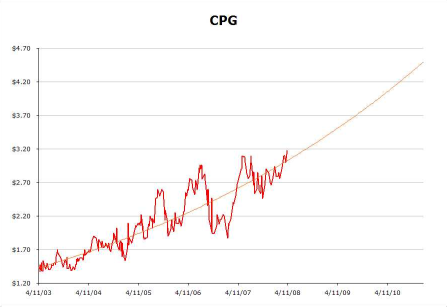Brian Gongol
Here's a Wise Guys prediction: The cost of sequencing an individual's entire genome will fall to under $1,000 within five years. There's already a $10 million X Prize on the line for a team to do rapid genome sequencing for under $10,000. Several teams are already in the running. If you take the "rapid" out of the requirement, then it seems likely the sequencing could be done for less. (Engineers often use the line: "Fast, cheap, or good. Pick two.")
Even if our exact prediction doesn't come true, the change is coming soon. Complete human genomes have already been sequenced and published, and it's a high-priority project for science. This means that public policy has to keep up -- remember, we're voting on a six-year Senate term in November. Our lawmakers need to be thinking about the ethical and legal issues involved immediately, if not sooner. And if voters aren't well-informed, then it's going to be hard to hold their feet to the proverbial fire. Think, for instance, about these questions: Will you be obligated to tell your insurance company about genetic conditions you carry if you pay for testing out of your own pocket? Can they drop you from coverage if you refuse to get your genome sequenced for their records? Who will pay if you have a predisposition of some sort but could have made lifestyle choices that would prevent you from suffering from the disease later? Should the insurance company pay for you to get preventative care? Should you? What if you choose not to get preventative care and end up getting a disease that the tests told you would emerge later?
A couple of airlines have gone out of business in the last few days: Aloha and ATA. The future of air travel in America could be headed for huge changes if we end up with fewer regular air carriers and more flight-on-demand services.
Visitors to one website named Apple the "world's most popular brand".
Comcast says it's going to roll out unbelievably fast broadband access in the Twin Cities: 50 Mbps...or enough to download a full-length HD movie in 10 minutes. That's outrageously fast.
If you have a lot of stress, it could be your mom's fault. Or your dad's. Apparently, part of our response to stress could be genetic.
If you replace the physical connections inside a chip with lasers, they could roar.
If you've noticed your computer slowing down for no good reason, try running Spybot Search & Destroy. It'll hunt down spyware, which is often the culprit.
Bell Labs, which used to be one of the nation's preeminent research and development labs, is looking to its future in a new era of communications.
Some British scientists say variations like sunspots on the Sun don't cause climate change.
One more prediction before we go: Expect gas prices to hit $5.00 per gallon sometime in the next 18 months somewhere in the US. Don't be surprised if that's the price we end up paying here.

Keywords in this show:
airlines •
Apple •
bankruptcy •
Bell Labs •
climate change •
Comcast •
computer chips •
gas prices •
genetics •
genomes •
global warming •
health care •
health insurance •
heredity •
insurance •
lasers •
lawmaking •
predictions •
preventative care •
research and development •
Spybot Search and Destroy •
spyware •
stress •
sunspots •
wideband Internet access •
X-Prizes
